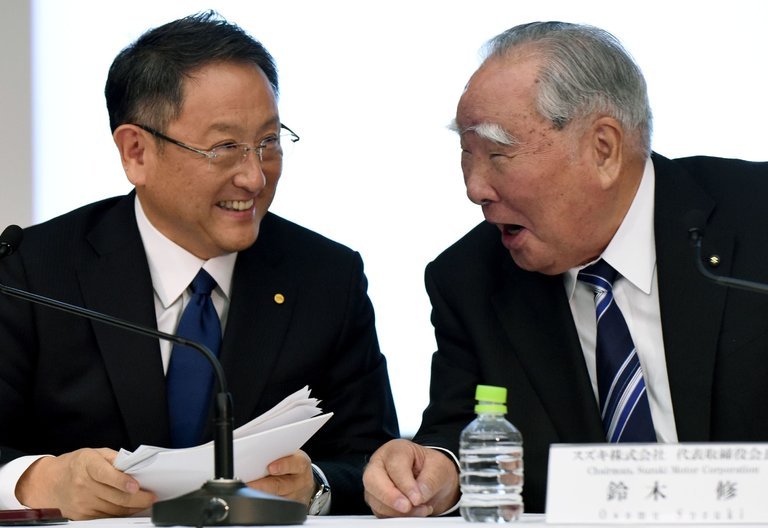Toyota and Suzuki Say They Are Considering an Alliance

The manufacturers, both Japanese, were vague about what might happen. A merger, even a partial one, would effectively bring Suzuki into the orbit of the much larger Toyota, which regularly vies with Volkswagen to be the world's biggest automaker.
That would instantly give Toyota a major presence in places like India, a huge though still relatively poor market where Suzuki is the leading manufacturer through its Maruti Suzuki affiliate. Suzuki specializes in small, inexpensive cars and has marketed its products assertively in developing countries.
Suzuki would benefit from Toyota's scale and resources — increasingly crucial to the development of new technologies, including self-driving cars and battery-powered electric vehicles.
"We are aware that the future is full of risks," Osamu Suzuki, Suzuki's chairman, said at a joint news conference with Akio Toyoda, Toyota's president and chief executive. Both men are members of their companies' founding families.
The fact that the companies' top leaders addressed the partnership talks publicly at such an early stage was unusual, and it suggested that they were committed to completing a deal.
"Everything, including the possibility of a capital tie-up, will be discussed going forward," Mr. Toyoda said.
Mr. Suzuki, in particular, has often spoken about the importance of alliances, especially for smaller manufacturers.
His company has worked with higher-volume producers before, though the marriages were sometimes rocky and one ended bitterly.
General Motors owned part of Suzuki for nearly three decades until the American carmaker's near collapse during the global financial crisis prompted it to sell its remaining Suzuki shares in 2008.
Suzuki then turned to Volkswagen, which bought a 20 percent stake in 2009. But the alliance unraveled acrimoniously less than two years later when Volkswagen passed over Suzuki to buy small-car engines from Fiat. Suzuki said the deal had violated their partnership.
Toyota has generally avoided splashy acquisitions and global alliances, but it has been quietly strengthening its hold over other Japanese carmakers.
This year it took over its longtime affiliate Daihatsu, a minicar maker whose products compete directly with Suzuki's. In 2008, Toyota increased its stake in the parent company of Subaru, Fuji Heavy Industries, to 16.5 percent. Toyota and Subaru have cooperated on production and car design, including the production of a small sports car, sold as the Toyota 86 and Subaru BRZ.
Nouvelles connexes


